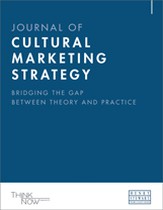The metonymy of #BlackTwitter: The effect of urban identification on hashtag activism
Abstract
‘Black Twitter’ is the moniker for the cultural identity of African American Twitter users, the influence of which is spreading from mainstream Twitter to society-atlarge. To investigate the influence of Black Twitter, this study posits a model of subcultural capital, conceptualising the knowledge, experience and skills that accompany hierarchy and influence within Black Twitter. Subcultural capital can be garnered in three ways: embodied, objectified and institutionalised. The study finds that the transcending, crosscultural psychographic of urban identification is the requisite embodied capital that significantly predicts the number of tweets (objectified capital) within Black Twitter. The number of followers a Black Twitter user has (institutionalised capital) statistically mediates the relationship between urban identification and number of tweets. Contrary to intuitive belief, ethnic identity — as embodied capital — is a nonsignificant predictor of objectified and institutionalised capital within Black Twitter. This paper contributes to the marketing psychology literature by positing urban identification within a model of multicultural social media consumption. It concludes that for multicultural marketing via Twitter, the combination of urban identification, followers and tweets, is a better basis for segmentation than race and ethnicity. The paper also discusses managerial implications and additional theoretical considerations.
The full article is available to subscribers to the journal.
Author's Biography
J.P. James is an assistant professor of marketing in the Bertolon School of Business at Salem State University. He holds a master’s degree in integrated marketing communication from Northwestern University and a PhD from Rutgers Business School. Dr James researches multicultural marketing and marketplace diversity and his work has been published in the Journal of Public Policy & Marketing and Journal of Management Policy and Practice. Prior to pursuing a PhD, Dr James was an executive in the advertising industry.
